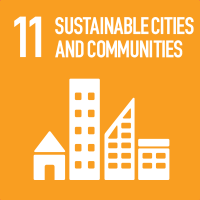Studying at the University of Verona
Here you can find information on the organisational aspects of the Programme, lecture timetables, learning activities and useful contact details for your time at the University, from enrolment to graduation.
Study Plan
This information is intended exclusively for students already enrolled in this course.If you are a new student interested in enrolling, you can find information about the course of study on the course page:
Laurea in Studi strategici per la sicurezza e le politiche internazionali - Enrollment from 2025/2026The Study Plan includes all modules, teaching and learning activities that each student will need to undertake during their time at the University.
Please select your Study Plan based on your enrollment year.
1° Year
| Modules | Credits | TAF | SSD |
|---|
2° Year activated in the A.Y. 2023/2024
| Modules | Credits | TAF | SSD |
|---|
2 modules among the following3° Year activated in the A.Y. 2024/2025
| Modules | Credits | TAF | SSD |
|---|
2 modules among the following| Modules | Credits | TAF | SSD |
|---|
| Modules | Credits | TAF | SSD |
|---|
2 modules among the following| Modules | Credits | TAF | SSD |
|---|
2 modules among the following| Modules | Credits | TAF | SSD |
|---|
Legend | Type of training activity (TTA)
TAF (Type of Educational Activity) All courses and activities are classified into different types of educational activities, indicated by a letter.
Economics of public policies (2024/2025)
Teaching code
4S010548
Teacher
Coordinator
Credits
6
Language
Italian
Scientific Disciplinary Sector (SSD)
SECS-P/03 - PUBLIC ECONOMICS
Period
Sem. 2A, Sem. 2B
Courses Single
Authorized
Learning objectives
The course aims to enable students to understand the economic motivations, from a normative point of view, for state intervention in situations of risk, emergency and vulnerability. Public policies implemented by industrialized countries for the governance of important social, health, environmental and economic risks will be analyzed from a comparative perspective.
Emphasis will be placed on the importance of knowing and understanding the main tools available to the policy maker to "design" a good public policy, to monitor its outcomes and to carry out an accurate economic assessment of its effects.
Finally, the course aims to develop skills in the use of the most important national and international economic databases and in "problem solving" through the analysis of some case studies.
Prerequisites and basic notions
No prior knowledge of subjects included in the study program is required.
Program
1. Introduction to the course.
2. Theoretical economic reasons for public intervention.
3. An international overview of public finance.
4. The main economic, social, and environmental risks of the 21st century.
5. Evolution, innovation, and sustainability of welfare state systems in Europe.
6. Policy tools, public policy design, and impact evaluation.
7. Case studies of innovative and sustainable national and local public policies.
Bibliography
Didactic methods
The teaching methods consist of theoretical lectures, analysis, and interpretation of databases and short articles. Active participation will be encouraged during the lessons through questions, group discussions, and sharing of perspectives.
Students will develop individual or group projects on topics proposed by the professor, which will then be presented and discussed collectively in class.
The final evaluation will take into account active participation during the lessons, the presentation of the in-depth project, and a final written exam.
The lectures will be held in Italian.
Further information regarding the course organization will be provided on the course's Moodle page.
Learning assessment procedures
The assessment of learning and skill development is carried out through a written exam with theoretical and practical questions covering the entire course syllabus.
During the semester, assignments and activities with specific methods and deadlines defined by the professor will be given, and these will contribute to the final evaluation.
Evaluation criteria
**Knowledge and understanding**: assess whether students have acquired and understood the fundamental content of the course, demonstrating mastery of concepts, theories, and terminology.
**Application of knowledge**: assess the ability of students to contextualize theoretical notions and apply them to analyze real cases, solve problems, and develop critical reasoning.
**Communication skills**: assess the ability to articulate ideas clearly, coherently, and accurately, using appropriate language.
**Critical thinking**: assess the ability to logically interpret information and express well-founded and substantiated opinions.
**Synthesis skills**: assess the ability to select key concepts and present them in a concise yet comprehensive manner.
**Formal accuracy**: assess adherence to instructions, content organization, and the correct use of citations and references.
Criteria for the composition of the final grade
The final grade is determined by the assessment of the written exam. For students who participated in the practical exercises proposed by the professor during the course, the final grade will also take into account the results achieved in those exercises.
Exam language
Italiano.




